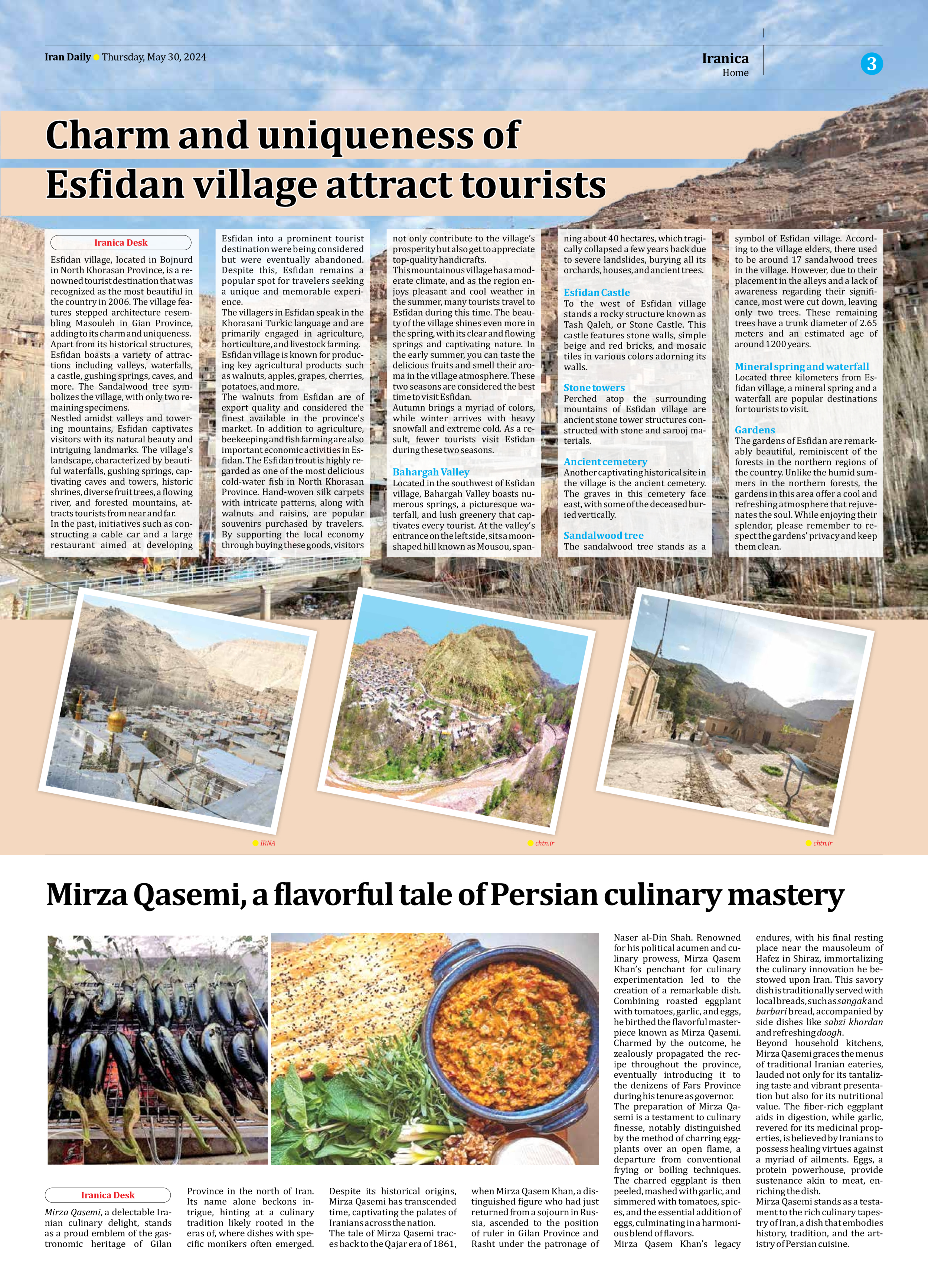
Mirza Qasemi, a flavorful tale of Persian culinary mastery
Mirza Qasemi, a delectable Iranian culinary delight, stands as a proud emblem of the gastronomic heritage of Gilan Province in the north of Iran. Its name alone beckons intrigue, hinting at a culinary tradition likely rooted in the eras of, where dishes with specific monikers often emerged. Despite its historical origins, Mirza Qasemi has transcended time, captivating the palates of Iranians across the nation.
The tale of Mirza Qasemi traces back to the Qajar era of 1861, when Mirza Qasem Khan, a distinguished figure who had just returned from a sojourn in Russia, ascended to the position of ruler in Gilan Province and Rasht under the patronage of Naser al-Din Shah. Renowned for his political acumen and culinary prowess, Mirza Qasem Khan’s penchant for culinary experimentation led to the creation of a remarkable dish. Combining roasted eggplant with tomatoes, garlic, and eggs, he birthed the flavorful masterpiece known as Mirza Qasemi. Charmed by the outcome, he zealously propagated the recipe throughout the province, eventually introducing it to the denizens of Fars Province during his tenure as governor.
The preparation of Mirza Qasemi is a testament to culinary finesse, notably distinguished by the method of charring eggplants over an open flame, a departure from conventional frying or boiling techniques. The charred eggplant is then peeled, mashed with garlic, and simmered with tomatoes, spices, and the essential addition of eggs, culminating in a harmonious blend of flavors.
Mirza Qasem Khan’s legacy endures, with his final resting place near the mausoleum of Hafez in Shiraz, immortalizing the culinary innovation he bestowed upon Iran. This savory dish is traditionally served with local breads, such as sangak and barbari bread, accompanied by side dishes like sabzi khordan and refreshing doogh.
Beyond household kitchens, Mirza Qasemi graces the menus of traditional Iranian eateries, lauded not only for its tantalizing taste and vibrant presentation but also for its nutritional value. The fiber-rich eggplant aids in digestion, while garlic, revered for its medicinal properties, is believed by Iranians to possess healing virtues against a myriad of ailments. Eggs, a protein powerhouse, provide sustenance akin to meat, enriching the dish.
Mirza Qasemi stands as a testament to the rich culinary tapestry of Iran, a dish that embodies history, tradition, and the artistry of Persian cuisine.







